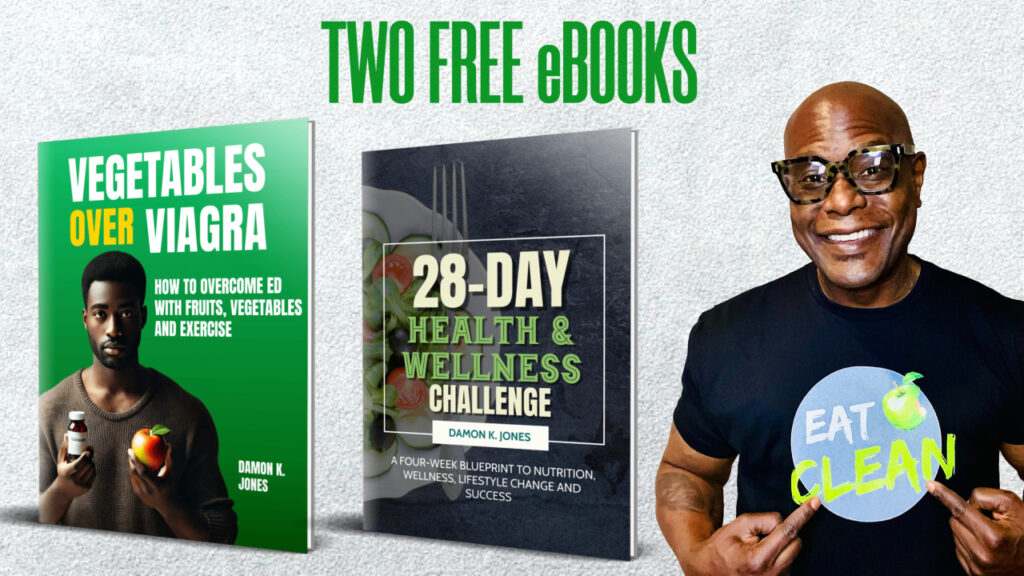In a world where processed food and chronic illness disproportionately affect Black communities, choosing to be vegan or plant-based isn’t just a diet—it’s a radical act of self-preservation, cultural reconnection, and resistance.
When people think of revolution, they picture protests, raised fists, and political speeches. But what if revolution also lived on your plate?
The idea of food as a weapon is not new. During the Civil Rights and Black Power movements of the 1960s and 70s, visionary leaders understood that liberation wasn’t just political—it was personal. The Black Panther Party’s Free Breakfast Program served as more than just a meal. It was a statement: our children deserve nourishment and dignity.
Dick Gregory, a civil rights icon, was among the first to link veganism with Black liberation. He adopted a plant-based lifestyle in the 1960s, believing that clean food cleared the mind and body for true freedom. His book “Cookin’ With Mother Nature” wasn’t just about eating—it was about healing from generational trauma.
And long before “vegan” became a hashtag, Elijah Muhammad’s “How to Eat to Live” taught Black Muslims the power of clean, restricted eating. Meat was minimized, fasts were spiritual, and processed food was rejected. His message: food should strengthen the soul, not weaken the body.
There’s also a deeper spiritual blueprint to plant-based living—one found in the story of Daniel.
“Daniel resolved not to defile himself with the royal food and wine…” (Daniel 1:8). Instead, he asked to be fed only “vegetables and water” for ten days (Daniel 1:12). The Hebrew word used for vegetables—zeroa—refers broadly to foods grown from seed: fruits, grains, legumes, and vegetables.
The result?
“At the end of ten days they looked healthier and better nourished than any of the young men who ate the royal food.” (Daniel 1:15)
Their physical transformation was evident. But more than that, they were elevated in wisdom, knowledge, and favor—both by God and the king. “To these four young men God gave knowledge and understanding of all kinds of literature and learning. And Daniel could understand visions and dreams of all kinds.” (Daniel 1:17)
What happened to Daniel and his friends is not just a spiritual story—it’s reproducible. When you eat nothing but fruits, vegetables, grains, and water for ten days, your body begins to heal. Your face brightens. Your thoughts sharpen. You feel lighter, clearer, and more alive.
This is not religious myth. It is spiritual science. It is divine design.
There’s a misconception that veganism is a “white thing.” But truthfully, many traditional African and Caribbean diets were naturally plant-based—rich in legumes, grains, fruits, and vegetables. Colonialism introduced heavy meat consumption and processed goods, disrupting these original foodways.
To go plant-based as a Black person is to decolonize your plate. It’s a return to ancestral wisdom—one that nourished our people long before slavery and exploitation shaped our current food systems.
Today, many in the Black community are reclaiming that legacy by returning to ancestral ways of eating and healing. Elders like Queen Afua and Dr. Sebi laid the groundwork for this path decades ago, advocating for holistic health, plant-based diets, and spiritual alignment long before wellness became a mainstream trend. Their teachings continue to inspire millions to rethink what it means to truly nourish ourselves—physically, mentally, and spiritually—especially in communities that have long been excluded from the health conversation.
This isn’t just about food; it’s about equity, access, and agency. In food deserts, where fast food chains are more common than grocery stores, choosing plants is a form of protest. In a healthcare system that overlooks Black bodies, eating intentionally is an act of survival.
Being a Black vegan today means standing at the intersection of history, health, and hope. It means acknowledging that systemic racism runs through our food systems just as deeply as it does through housing, education, and policing.
And in the face of that, choosing what you eat becomes revolutionary.
Because when you nourish your body, you strengthen your mind. And when a whole community begins to do that? That’s when the real revolution begins.

Reclaim Your Vitality—The Natural Way
1. Vegetables Over Viagra (eBook)
Uncover the truth about plant-based nutrition and its powerful effect on male sexual health.
Say goodbye to dependency on pills—this guide shows you how to reclaim your power through food, movement, and lifestyle.
2. BONUS: 28 Day Wellness Challenge
A simple, no-fluff daily plan packed with:
- Habit trackers
- Meal & movement goals
- Motivation for consistency
Perfect for busy men who want real results—without the overwhelm.
 Get Instant Access Now
Get Instant Access Now

Start your journey to a healthier, stronger, more energized YOU—starting today.













